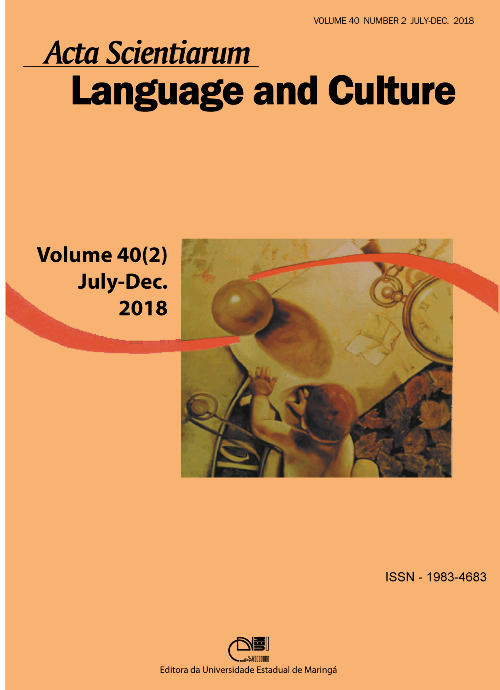<b>‘I will not become an Internet meme’: visual-verbal textualization process in the study of the power and resistance in Brazil
Abstract
In this article, we analyze a delimited corpus of Internet memes showcasing Brazilian President Michel Temer. The theoretical framework is based on literacy studies, digital information and communication technology usage in research and teaching, and Bakhtin studies. The methodological design follows the approach of Gambarato and Komesu (2018), who selected and analyzed data sets of memes based on classification tools developed by Dawkins (1976) and Knobel and Lankshear (2007). The main goal is to discuss the relevance of using ‘Internet memes’, while studying the concept of ‘text’. Therefore, regarding the mobilization of digital information and communication technologies, we consider how the appropriation of someone else’s word takes place through verbal and visual-verbal elements potentially available to subjects on the Web. We aim to discuss effects of meaning deriving from the way these texts are disseminated across spreadable media, taking into account power and resistance relations between subjects of/in language.
Downloads
Metrics
DECLARATION OF ORIGINALITY AND COPYRIGHTS
I Declare that current article is original and has not been submitted for publication, in part or in whole, to any other national or international journal.
The copyrights belong exclusively to the authors. Published content is licensed under Creative Commons Attribution 4.0 (CC BY 4.0) guidelines, which allows sharing (copy and distribution of the material in any medium or format) and adaptation (remix, transform, and build upon the material) for any purpose, even commercially, under the terms of attribution.
Read this link for further information on how to use CC BY 4.0 properly.




















6.png)









